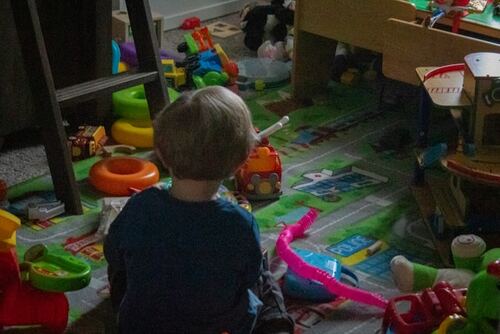Language growth is an essential milestone in a child’s growth. How can therapy sessions aid in fostering this journey? Many parents and caregivers wonder how professional guidance can help children who face challenges in expressing themselves effectively. Understanding how specific methods encourage communication exploration offers valuable insights.
A paediatric speech therapist focuses on helping young individuals build communication skills by creating an engaging and supportive environment. These specialists utilise strategies designed to stimulate expression and comprehension, catering to individual needs. Their approach ensures that every child has a chance to thrive in their ability to communicate.
The Power of Play-Based Techniques
Play is an essential part of childhood, and it serves as a foundation for interactive learning. Professionals often incorporate toys, games, and storytelling to engage young learners in meaningful ways. These activities create a relaxed atmosphere, encouraging kids to experiment with sounds and words naturally.
By using imaginative scenarios and relatable themes, therapists enable children to connect with their surroundings. This playful approach not only helps in building vocabulary but also enhances problem-solving and cognitive abilities, making it a multifaceted tool for growth.
Encouraging Social Interaction
Group activities are another effective way to stimulate communication. Sessions that involve peers help foster social skills while allowing participants to practise conversational techniques. These interactions often simulate real-life scenarios, enabling children to understand non-verbal cues like facial expressions and gestures.
Through collaboration and mutual engagement, kids learn to navigate communication in diverse settings. These experiences boost confidence, empowering them to express themselves clearly in different situations, both at home and in the community.
Customised Approaches for Individual Needs
No two children are the same, which is why personalised strategies are essential. Specialists tailor their sessions to match each child’s unique challenges and strengths. This individualised focus ensures that the therapy aligns with developmental levels and specific goals.
For instance, a professional might use visual aids, repetitive sounds, or tactile activities to address particular barriers. These customised plans maximise progress by targeting areas that require improvement, offering a structured path to successful communication.
Building a Foundation Through Repetition
Repetition is a cornerstone of learning, particularly for young minds. By repeating words, phrases, or sounds, therapists reinforce understanding and retention. This method is particularly effective in helping children who struggle with articulation or comprehension.
- Key benefits of repetition include:
- Reinforcement of correct pronunciation and grammar.
- Strengthened memory for new vocabulary.
- Improved listening and response times.
Consistent exposure to repetitive patterns helps children feel more comfortable and confident, gradually reducing hesitation when speaking.
Boosting Confidence Through Positive Reinforcement
Confidence plays a significant role in a child’s ability to communicate. Therapists focus on celebrating small victories and using encouragement to build self-esteem. Positive reinforcement, whether through verbal praise, stickers, or tokens, motivates kids to keep trying and experimenting.
Creating a safe space where mistakes are viewed as part of the learning process helps children feel more secure. Over time, this supportive environment fosters independence in their communication efforts, enabling them to approach conversations with ease.
Why Early Intervention Matters
Starting therapy can have a profound impact on a child’s development. Identifying and addressing challenges at a young age prevents potential communication barriers from escalating. Early intervention lays the groundwork for smoother social interactions and academic success.
When young learners receive timely support, they are better equipped to navigate their world. The collaborative effort between therapists, parents, and educators ensures a well-rounded approach to fostering communication skills.
Engaging professional support encourages young learners to explore their expressive potential, paving the way for effective communication. A paediatric speech therapist fosters these skills by combining tailored methods, creative tools, and consistent encouragement. With the right guidance, children can confidently express themselves and connect with others, enhancing their overall development.




